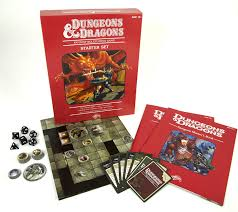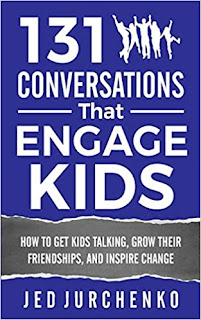School in the 70's with Learning Disabilities
My education was very difficult. Especially in the US school system. In early elementary, I was quite the challenge. Double vision, dyslexia, all the signs and behaviors with what is known today as autism. I failed every class. Even art. My mother was proactive. She worked diligently to ensure I wasn't merely overlooked and placed with the retarded kids. I know that is an unacceptable term today. But the distinction is very important. Back then every child with any learning disability was put into one room. No real learning can take place in such an environment. And I am not speaking in platitudes. I am speaking from direct experience. Everyone was treated according to the most challenged student. Luckily for me, my mom was a fierce advocate. She spent many hours, several days a week, arguing with teachers, counselors, and principles concerning keeping me in a regular classroom.
My parents decided I needed a different environment. We lived in a subdivision on the boarder of two separate school districts. I had to walk to the next street over to catch the bus to the new school. There are stories of parents telling their kids they had to walk to school, in the snow, uphill, both ways, barefoot. I laugh when I think of this. I had a choice to walk to the end of our street and back up even with our house on the next street to catch the bus. Or I could go two houses up the street and cross between yards. The yards butted together in a slight valley between the houses. So, in the winter, I did walk uphill both ways in the snow. Lol
The new school had one teacher who specialized in incorporating "troubled" students into her classroom. Mrs Smith. On the first day of class, she gave the majority of students busy work and pulled four of us into the hallway. I was a bit scared, not knowing what was to happen. But it was very unwarranted. She explained that she was basically running two classes in one room with the goal of keeping all of the students at the same level of learning. She would give us a worksheet at the beginning of each class designed to each of our unique situations. And allow us to make what progress we could until she had the rest of the class on task with their work. She took us back into class and handed us our first worksheet. It was the same for all four of us, as she wished to evaluate our basic abilities.
I really liked this teacher. She was the first teacher to make me feel as though I was worthy of some effort on the staff's part. And was willing to see my uniqueness as it was. I merely saw the world differently than most kids. I interacted with it differently. I felt things differently. And I was abundantly relieved.
So I sat down and started reading. Like all such assignments, it wanted the name of the student, the date, and then had a list of things to answer. Only, the page was full of tasks instead of questions. For example,
2. Stand up and turn around three times.
3. Take your desk to the back of the room.
4. Go to the fountain in the hallway and take three drinks from the fountain.
25. Go to the restroom and bring back 3 paper towels.
But number 30 was the kicker.
30. Disregard all previous instructions.
I couldn't help myself. I was the first one done. I was so proud of myself for being the first one done on any assignment I had ever received. But this taught me one of the most valuable things any student with learning challenges can learn. Pay close attention. Number one on the list was
1. Please read all instructions before beginning.
Mrs Smith put her finger over her mouth and smiled at me as one by one each of the others finished as well. Each seeing what she had done. Art, a little Asian boy, was furious and said she tricked us. I just smiled and told him I didn't think so.
I do not have many fond memories from elementary school, but this was one of the best. I never felt good enough. Smart enough. Most teachers treated me as though I was weird or abnormal. In many ways, I was. My brain simply refused to conform to what they considered normal. And teachers weren't equipped or prepared to deal with diversity within their students needs or abilities.
I am in my 50's now and I will never forget that first day. The entire year was spent as a great experiment for me. She was intuitive, creative, and most of all, patient. All four of us needed that eloquent lovely lady far more than we knew back then. She created many exercises, puzzles, games, and assignments unique to our individual needs. I never got the chance to thank here once I was an adult.
There are many tools available today to help kids with developmental struggles. Below are those I could find that are similar to how she tried to help me.




Comments
Post a Comment